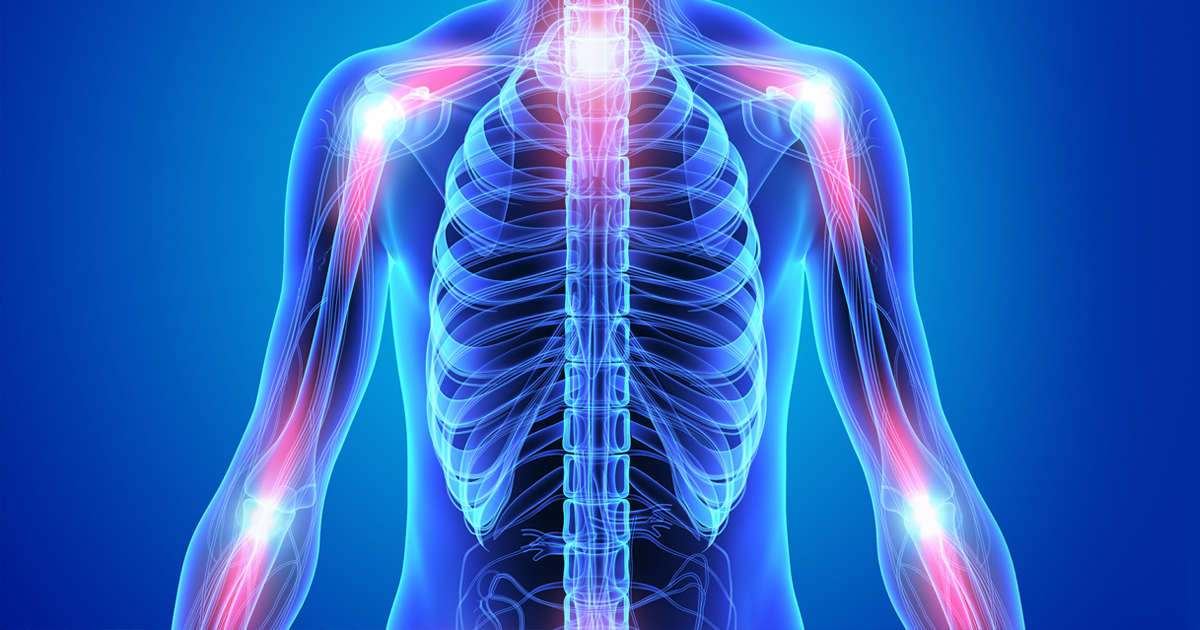
Inflammation is often a double-edged sword. On the one hand, it’s the body’s protective response to help you heal from injury and infection. But on the other, it’s a frequent enemy, when the inflammatory process it uses to protect you goes awry and even aids in the development of diseases like cancer.
The complex relationship between cancer and inflammation isn’t new. German pathologist Rudolf Virchow first noted the potential tie in the 19th century. Yet it wasn’t until the past 15 years that scientists learned more about the association.
In this article, we’ll explore:
If you’ve been diagnosed with cancer and are interested in a second opinion on your diagnosis and treatment plan, call us or chat online with a member of our team.
What is inflammation?
Inflammation is a normal physiological process that occurs in response to infection or injury. The immune system releases white blood cells and chemicals to fight an infection or repair damaged tissue. Then, after the infection goes away or the tissue heals, the inflammatory process shuts off as part of a process known as acute inflammation.
Chronic inflammation develops when the response doesn’t shut off when it should, or when it turns on even when the body doesn’t have an infection or injury to heal.
“Chronic inflammation is sometimes called ‘smoldering inflammation’ because it’s inflammation that never really resolves,” says Eugene Ahn, MD, Medical Director of Clinical Research and Hematologist/Oncologist at City of Hope® Cancer Center Chicago.
Causes of inflammation in the body
If inflammation isn’t in response to an injury or infection (acute), it becomes chronic, which may occur when the body is trying to get rid of a harmful substance, like asbestos, of instance, a mineral closely tied to lung cancer and mesothelioma. But chronic inflammation may also result from an unhealthy lifestyle, including a poor diet or not inadequate exercise.
“The more sedentary you are and the worse your diet is, the more inflammation you’re generating,” Dr. Ahn says.
Many autoimmune diseases, such as lupus and Crohn’s disease, also cause chronic inflammation. These conditions occur when the immune system mistakenly attacks healthy cells in the body.
Although genetics and family history may play a role in autoimmune disease, scientists believe that certain environmental exposures—like sunlight and some types of chemicals, viruses and bacteria—may also trigger these illnesses to develop.
Does inflammation cause cancer?
Researchers today consider inflammation a hallmark of cancer, with up to 20 percent of cancer-related deaths linked to the process.
That’s because, no matter what causes it, an inflammatory response that doesn’t shut off when it should, or one that turns on when it shouldn’t, may damage healthy tissue over time. It may also lead to mutations that cause cells to reproduce rapidly, creating an environment that may lead to tumor growth.
Recent studies have explored the ways chronic inflammation may contribute to cancer—namely, either by helping to create the right environment for cancer to form or by promoting the growth and spread of cancer once it’s developed. The inflammatory process may affect cancer spread because it produces molecules called cytokines, which stimulate the growth of blood vessels that supply tumors with oxygen and nutrients. And it may generate molecules called free radicals that further damage DNA.
Common cancer treatments, like surgery, chemotherapy and radiation therapy, may also promote inflammation by damaging tissue. That’s why doctors who treat cancer weigh the benefits and risks of a treatment before prescribing it, even though the benefits of treatment usually outweigh the risks.
Still, there are other cancer treatments, like immunotherapy, that are designed to kill cancer cells by activating some of the inflammatory processes. Researchers are now using this evidence to explore new treatments to fight the disease.
Cancers that may be linked to inflammation
The strongest association between chronic inflammation and cancer is colorectal cancer that develops due to inflammatory bowel diseases, like chronic ulcerative colitis and Crohn’s disease.
But similarly:
Epstein-Barr virus (EBV), which causes infectious mononucleosis, raises the risk of nasopharyngeal cancer (cancer that develops in the back of the nose) and certain lymphomas.
Helicobacter pylori (H. pylori) infection (caused by bacteria) is the world’s leading cause of gastric, or stomach, cancer.
Hepatitis B and hepatitis C are viral infections that may raise the risk of liver cancer.
HIV infection raises the risk of cancers including those of the lung, anus and liver.
Human papillomavirus (HPV) infection increases the risk of cervical cancer and head and neck cancers.
Schistosomiasis infection (caused by parasitic flatworms) is linked to an increased risk of bladder cancer.
Other infections have unproven links to cancer, as well. But it’s not just viruses and bacteria causing chronic inflammation and raising the risk of certain types of cancers; it’s other factors, too, like ultraviolet light, which increases the risk of melanoma, and smoking, which is blamed for roughly 80 percent of all lung cancer cases.
Reducing cancer risk
Although you can’t control some risk factors for chronic inflammation, like genetic mutations and certain environmental factors, you can control others, like stress, nutrition, physical activity, tobacco use or too much alcohol consumption.
“I always tell patients that there are certain things they have control over in their lives, and there are certain things they don’t, and they should only worry about the things they have control over,” Dr. Ahn says. “That’s where lifestyle comes into play.”
You may help to prevent unhealthy inflammation by:
- Eating a healthy diet
- Exercising regularly
- Maintaining a healthy weight
- Managing stress levels
- Not drinking too much alcohol
- Not smoking
Even small changes can make a difference, like adding more plant-based foods that contain anti-inflammatory phytonutrients to your plate and eating more fermented foods, such as yogurt and miso, which contain natural probiotics that reduce inflammation. Also, try to avoid carcinogens like asbestos and silica.
Experts also recommend limiting processed foods, which may increase the risk of throat cancer because preservatives can act as irritants. Alcohol can act as an irritant, too, especially in the head and neck—the first area food or drink touches when swallowed. Another concern: Alcohol and its byproducts may damage the liver and lead to inflammation in the organ.
Preventing cancer related to inflammation
In the past 10 years, the U.S. Preventive Services Task Force updated its guidelines to recommend certain adults ages 50 to 59 years old take low-dose aspirin to help prevent colorectal cancer, urging older adults to also consider an aspirin regimen.
Already in the United States, tens of millions of adults take aspirin to reduce the risk of heart attack or stroke. “We take aspirin to prevent heart attacks, so taking it to prevent certain types of cancer isn’t unreasonable,” Dr. Ahn says.
Also in the last decade, researchers have studied using anti-inflammatory drugs to reduce cancer risk. One study found that giving patients with certain types of breast cancer chemotherapy plus an anti-inflammatory drug helped shrink their tumors in half. Scientists predict more studies will be published in the coming years testing combinations of drugs that target inflammation in people with cancer.
If you’ve been diagnosed with cancer and are interested in a second opinion on your diagnosis and treatment plan, call us or chat online with a member of our team.



